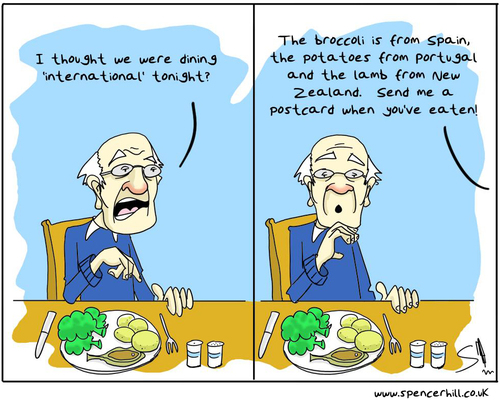…people in developing markets appear to put a bit more weight on sustainability in purchasing, with 78% of U.S. and 53% of U.K. consumers saying they feel better about buying products that are sustainably produced, vs. 85 to 88% of consumers in India, Turkey and Brazil saying so.
This quote explains the differences between developing and developed markets when it comes to sustainable buying habits. It is my understanding that developing countries are more sustainable because they need to be. The high consumption high waste North American society I am familiar with doesn’t need to be sustainable. Most of the time, the impact of our consumption and resource use is not directly felt. But in a developing country? Wasting resources just isn’t an option.

Source: https://3.bp.blogspot.com/_nrw47tPGg_I/TSX5mTHmejI/AAAAAAAAAH4/Z6oN6m9RvZQ/s1600/carbon_footprint.gif
So how do we combat general North American apathy? My ideal solution lies with consumer education, but that only goes so far. I know eating local is better, but sometimes that extra $2 a week for the cucumber makes me pause. I know I need to turn off all of the lights, but coming home alone to a dark house after work often unsettles me.

Source: https://www.toonpool.com/user/10691/files/foreign_food_905185.jpg
The role of government and companies in the fight for a more sustainable world is imperative. I don’t believe I should have the choice of a less sustainable product. I want my choice of products and services to protect the earth while being socially and economically responsible.
National Geographic has a wonderful resource called Greendex. The online sustainability calculator asks a set of in-depth questions about your personal consumption of resources, and approximates a score. Check it out!
Sources used (hyperlinked in post):
http://adage.com/article/cmo-strategy/sustainability-marketing-work/307359/
http://environment.nationalgeographic.com/environment/greendex/calculator/
https://www.toonpool.com/user/10691/files/foreign_food_905185.jpg
